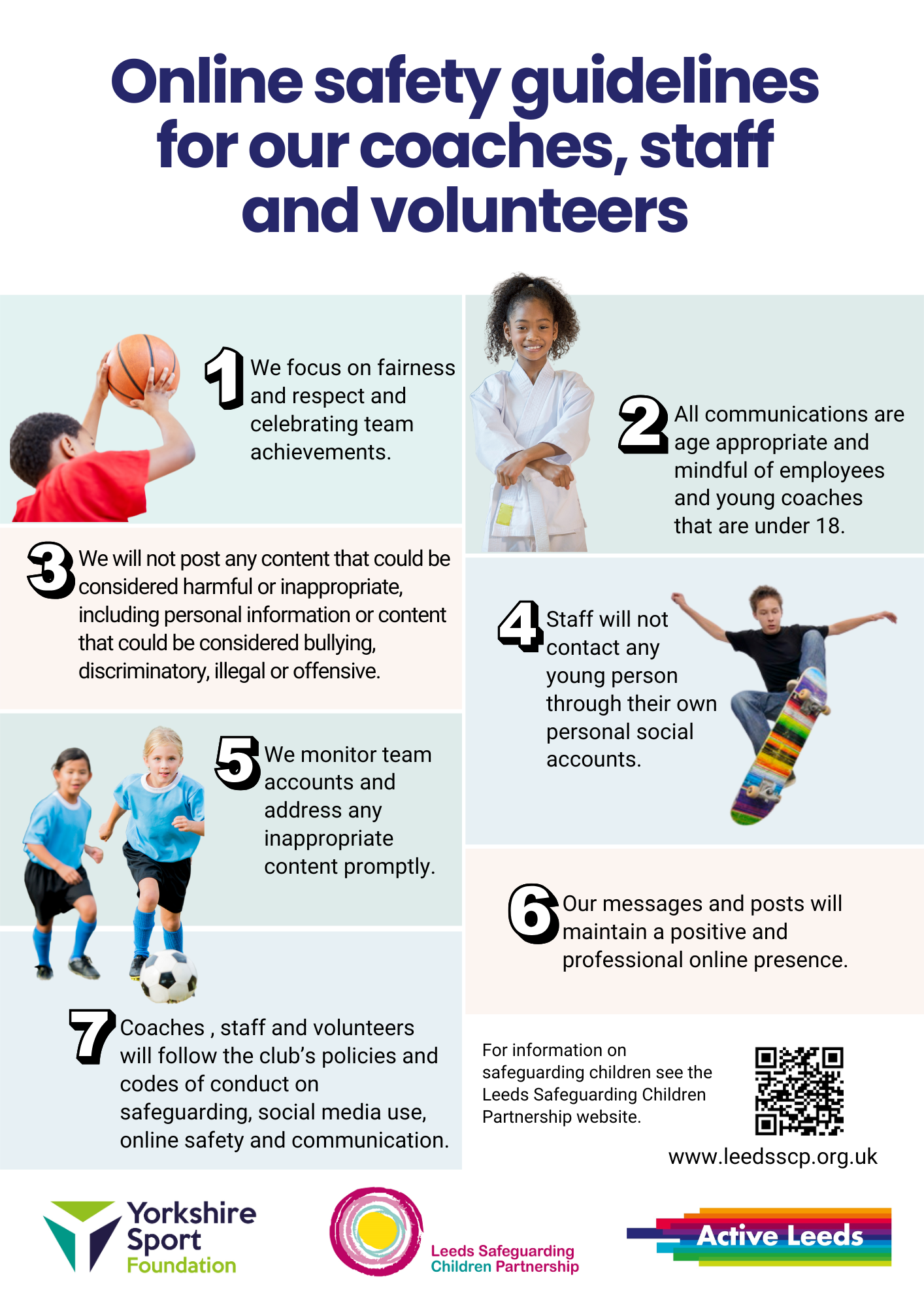In today's digital age, online safety is paramount for everyone involved in sports, from coaches and volunteers to staff members. Ensuring a safe and respectful online environment is crucial for fostering a positive atmosphere in sports venues. We have developed helpful guidance on online safety for sports coaches, volunteers, and staff, emphasizing fairness, respect, and the celebration of team achievements.
At the heart of our online safety guidelines is the commitment to fairness and respect. Every interaction, whether online or offline, should reflect these values. By promoting a culture of respect, we create an environment where everyone feels valued and appreciated. Celebrating team achievements is an excellent way to reinforce this positive atmosphere, highlighting the collective efforts and successes of the group.
All communications should be age-appropriate and mindful of the diverse age groups involved in sports. This is especially important when interacting with employees and young coaches under 18. Ensuring that messages are suitable for the recipient's age helps prevent misunderstandings and maintains a respectful tone. Coaches and staff should be trained to recognize the different needs and sensitivities of various age groups.
One critical aspect of online safety is the use of personal social accounts. Staff members should never contact any young person through their own personal social accounts. This guideline helps maintain professional boundaries and protects the privacy of young athletes. Instead, all communications should be conducted through official channels, ensuring transparency and accountability.
Always use official email addresses and social media accounts for communication. This ensures that interactions are professional and traceable.
Regularly educate staff and volunteers on the importance of privacy settings on social media platforms. Encourage them to review and update these settings to protect their personal information.
Implement monitoring systems to oversee online interactions. This helps identify and address any inappropriate behaviour promptly.
Offer regular training sessions on online safety and digital etiquette. This keeps everyone informed about the latest best practices and potential risks.
Create a safe and anonymous reporting mechanism for any online safety concerns. Encourage staff and volunteers to report any suspicious or inappropriate behaviour and make them aware of your club’s safeguarding policy and how to report a safeguarding concern.
By adhering to these guidelines, sports coaches, volunteers, and staff can contribute to a safe and respectful online environment. This not only protects the individuals involved but also enhances the overall experience for everyone in the sports community. Let's work together to ensure that our digital interactions reflect the same values of fairness, respect, and teamwork that we uphold on the field.
Online safety guidelines for sports coaches, volunteers, and staff
Download your copy of our essential tips for online safety guidelines, tailored for sports coaches, volunteers, and staff. Ensure a positive and secure online experience for everyone.
- We focus on fairness and respect and celebrating team achievements.
- All communications are age appropriate and mindful of employees and young coaches that are under 18.
- We will not post any content that could be considered harmful or inappropriate, including personal information or content that could be considered bullying, discriminatory, illegal or offensive.
- Staff will not contact any young person through their own personal social accounts.
- We monitor team accounts and address any inappropriate content promptly.
- Our messages and posts will maintain a positive and professional online presence.
- Coaches, staff and volunteers will follow the club’s policies and codes of conduct on safeguarding, social media use, online safety and communication.
Ensure a safe and respectful online environment for everyone involved in sports. Download the poster from the Yorkshire Sport Foundation website, for helpful tips on online safety for sports coaches, volunteers, and staff.

